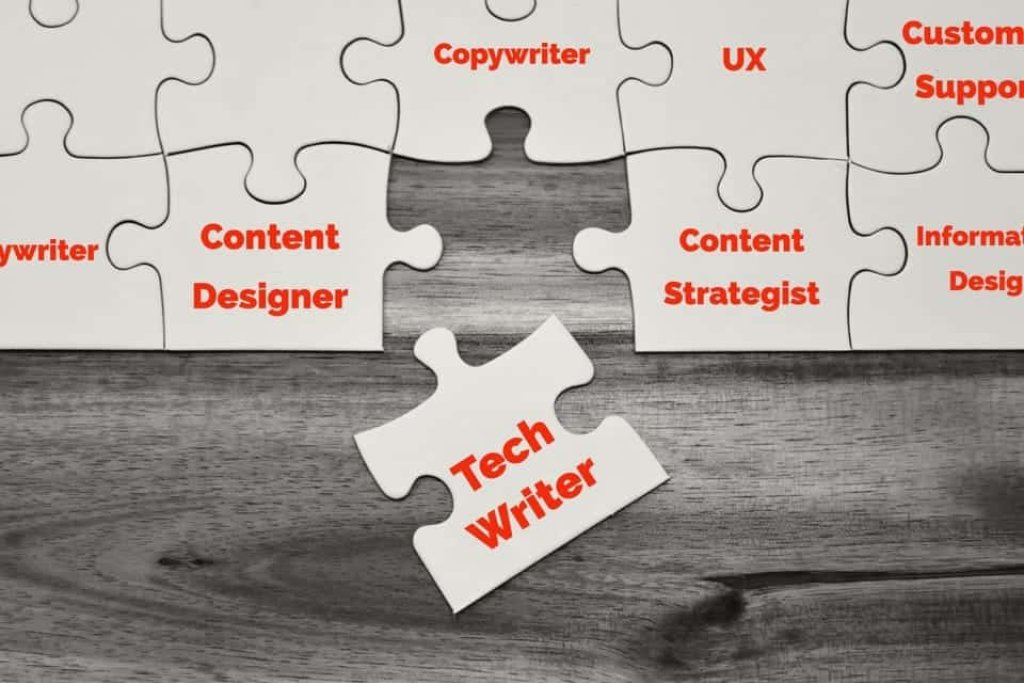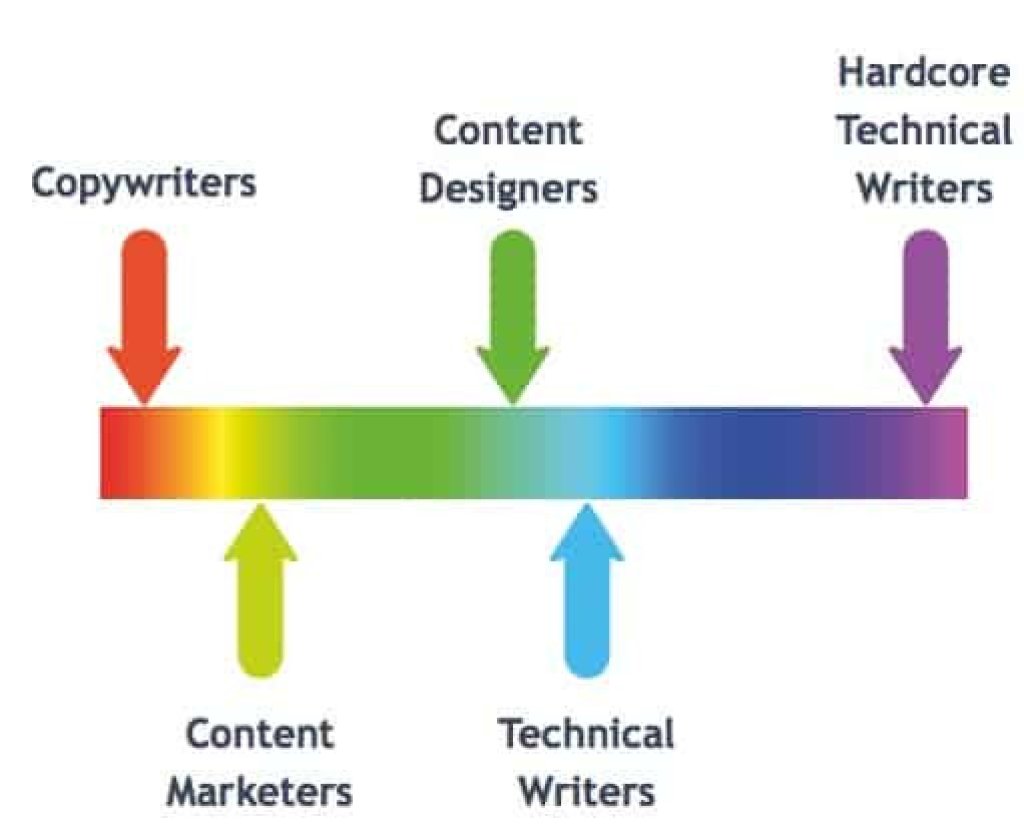
Not so long ago, I was having an online discussion with a copywriter about the differences in our work. During the conversation, the copywriter mentioned that he sees the gov.uk site as a good example of the type of writing that technical writers do. I agree, it is a very good example of information design. But I had a feeling that it wouldn't have been written by a technical writer.
A few weeks later, my suspicions were proved right. I was reading 'Content Design' by Sarah Richards, a content designer who led the team behind the gov.uk site. In the book, Sarah explains the process content designers follow to create information. It is very similar to that used by technical writers.
I'm interested in where the role of content designer and technical writer overlap and differ. So in this post, I'm going to look at the roles of content designers and technical communicators. I'm also going to consider how the perceptions of what we do can affect our opportunities.
In a follow up post, I'll look at how content designers go about their work and how that compares to technical writers.
Links to Sections
Content Designers
What do they do? - They create user-centred information for specific audiences. It is designed to be delivered at the right time, in the right format, via the right channels for that audience.
Typical background - Marketing, journalism, communication professions, UX design, web design, academic background in similar disciplines.
Content design is often seen as being related to marketing, but that is open to debate. It is certainly closer to marketing than technical communication, but that still doesn't make it marketing.
"Content is often treated as content marketing, and so an issue of copywriting and editorial (in the sense of planning a campaign of when and where content should go out). From my experience it's dominated by digital agencies, with people from an advertising agency and journalistic background.
Others see it as a UX problem. The advantage they have over Technical Authors is they have often have an academic background in in usability and the skills to measure usability. Some see it as an information design problem. There are problems in getting the content out to the right people, in the right language, within the deadlines."
- Ellis Pratt, Cherryleaf (Technical Communication Expert)
When I looked at job ads for content designers, most were focused on marketing and promotional content. But Sarah Richards, the author of 'Content Design' and the team leader behind the renowned gov.uk web site, argues:
"Content design is not about marketing. Content marketing is different again, in my experience. I certainly separate the two. It's about getting the right information to the audience at the right time and on the right channel in a way they expect."
- Sarah Richards, Content Design London
So that's something that content designers and technical writers have in common - there's lots of debate about what we do.
My view is that content design is information design. Sometimes that is information that is closer to marketing, where the aim is to sell or to get the reader to make a response. But it can also be providing helpful information, such as instructions or explanations. That's where content design starts to cross into technical communication.
Technical Writers
What do they do? - They create user-centred information for specific audiences. It is designed to be delivered in the right format for that audience.
Typical background - Technical professions, communication professions, customer service, training, teaching, academic background in technical or communication.
When people think of technical writers, they usually think of technical manuals, 'how to' web pages, and specifications. That's fair enough, because that's what a lot of technical writers create day-in, day-out. But it also leads to two incorrect assumptions:
All technical writers come from a technical background
Technical writers only write about technology for specialist audiences.
Do all technical writers come from a technical background? Not at all. I know of many technical writers, myself included, who come from more communication-related backgrounds. We just happen to have an aptitude for writing about tech. But that doesn' t mean that tech is all that we can write about.
On the gov.uk site, it says:
"A technical writer takes a user-centred approach to making complicated technical concepts easier to understand for a specialist audience.
They focus on specialist content and software documentation, and write for technologists such as developers, technical architects, and technology leaders."
- https://www.gov.uk/government/publications/technical-writer-role-description/technical-writer-role-description
That might be true of technical writers working for the government, but it isn't true of all technical writers.
As a profession, we predominantly write about technology, sometimes for specialist audiences. Many of us don't write exclusively for specialist audiences. For example, I've written documentation for women's health products. While the product was technical, the audience was the general public. There are many technical writers who document business processes too, and this doesn't have to be technical in nature.
Clearly, there is some overlap in what content designers do and what technical writers do. But there are some differences, and I think they mostly relate to the scope of our work.
Scope of Our Work
When I asked content designers, technical writers, and other content experts about the differences in our trade, most agreed that we fulfil similar roles. But several important differences kept being raised.
Content designers tend to use CMSs that have fewer authoring features than many of the tools technical writers use.
Technical writers often have to create and manage a large volume of content, and so we need ways of bulk editing and structuring content as modules.
Content designers may have a wider range of goals. They may need to create content that competes with competitors' content or has a PR element. Techncial writers generally have a single goal - to explain a concept and/or provide instructions.
Content reuse is important to many (but not all) technical communicators as it can dramatically reduce the amount of time needed to update suites of documentation. It allows us to create elements of content once, in one place, and then embed those in as many pages as needed. When an update is needed, we can make the change once and it will be applied wherever that element is used. This type of content reuse is common in advanced authoring tools, especially those that use structured XML.
In contrast, it appears that most content designers work using CMSs that don't have the same authoring capabilities as the leading tech comm tools.
"Technical communicators use their technical skills to create content. While what they do overlaps with content designers, they're not as focused on creating one-off crafted content, but using their technical skills to create content at scale. You'd be hard-pressed to find a content designer using power-authoring software such as FrameMaker to create semantically-rich content that could be re-used in the multiple ways across product lines and so on."
- Rahel Anne Bailie, Information Architect
I haven't worked with many CMSs (although I have been frustrated by the WYSIWYG editors in Zendesk and Freshdesk), so asked Tom Johnson about his experience with Drupal, a popular CMS.
"Drupal is not very suitable to the re-use scenarios and other more robust authoring needs in tech comm...I disliked it for tech docs. There's no easy way to edit and update content in bulk across a lot of different page"
- Tom Johnson, Technical Communication Expert
Writing with content reuse in mind opens up a whole new world of potential problems and compromises. It requires some skill and judgement to give content the detail required while still making it generic enough to be used on different pages. Technical writers also need to consider how the reusable content is structured in the authoring tool and make an effort to avoid overcomplicating the content.
Content Creator Spectrum
My view is that content designers and technical writers do similar work, but at different points in a 'content creator spectrum'. At one end, we have copywriters and marketers and at the other end, we have the 'hardcore' technical writers who write about tech for specialist audiences. Bridging the gap, we have content designers and 'regular' technical writers.

I think it's fair to say that each role on the spectrum can overlap into other roles. So you will get some content designers doing content marketing and technical writing under the banner of 'content design'. Similarly, some technical writers will do 'hardcore' technical writing and some will do non-tech content which could be described as content design.
Assumptions and Opportunities
The problem with the common perception of technical writers is that it pigeon-holes us far more than content designers. The skills we use, and the approach we take to write about technology can be used to write about other things, but the opportunities to do so can be limited. In contrast, it seems that content designers are recognised as content experts who can apply their techniques to many subjects.
"From the few conversations I've had with tech writers, we do pretty much the same, although you do seem to be boxed in a bit more. It seems you are not meant to use that skill on anything but making complex tech easier. Content design is meant to make anything easier."
- Sarah Richards, Content Design London
I suspect that this is because lots of people associate technical writing with terse, dry, and technical content. Hardly surprising, as that's what most people associate with manuals. But these days, there's more attention paid to making content accessible and in-keeping with the tone of voice of the marketing. (Not everywhere, it has to be said - there's still plenty of turgid tech comm out there).
It's not only that we get pigeon-holed as writers of tech content, but we can also be tied down to very specific types of tech. I've spent a lot of my career documenting monitoring and control software, but even getting work on other types of software has been a challenge at times. I think that's because of a general lack of understanding of the communication skills and 'soft skills' technical writers have. Perhaps the word 'technical' in our job descriptions does more harm than good, especially for those of us who seek more variety.
Technical writers are not entirely blameless for this situation, though. Although I'm generalising, there is sense that tech communicators stay in the comfort zone of our own little world and don't promote what we do or venture out to see what's going on in other content-related disciplines.
I think technical communicators tend to be introverts, happy to be left to their own devices to get on with the job. That may mean they are not pushing themselves forward to do these new opportunities.
- Ellis Pratt, Cherryleaf (Expert Technical Communicator)
There's also the fact that we're seen as providers of post-sales content that doesn't contribute to sales. This doesn't have to be the case, but we need to help others to recognise the potential in our work.
"Technical content is often of value to both prospective and to existing customers, but far too often technical writers have been seen as writing post-sale content, making what we do a cost center. By connecting our efforts to—and measuring the impact of our content on—prospective customers and sales, we open a door to new opportunities. We are just one type of information developer and we ought to be working closely with others in marketing, training, sales and beyond."
- Scott Abel, The Content Wrangler (Expert Technical Communicator)
Scott's point about the impact of technical communication is important. Especially when it comes to measuring its effect.
Conclusion
Now and again, I'll receive a message from a fellow technical writer asking about how I branched out into copywriting. The writer is frustrated in their work and is looking for ways to work on a more diverse range of projects. i can relate to that, as I've been there and, to a certain extent, still am in that position. That's the problem with being pigeon-holed as a technical writer. I think content design may be the route to a wider range of opportunities, but to get there, us technical writers need to break out of our bubble. We need to let the world know what we can do and make an effort to get involved with the content design world.
What do you think? Let me know in the comments.
Special Thanks To...
Ellis Pratt, Cherryleaf
Sarah Richards, Content Design London
Tom Johnson, idratherbewriting.com
Scott Abel, thecontentwrangler.com

